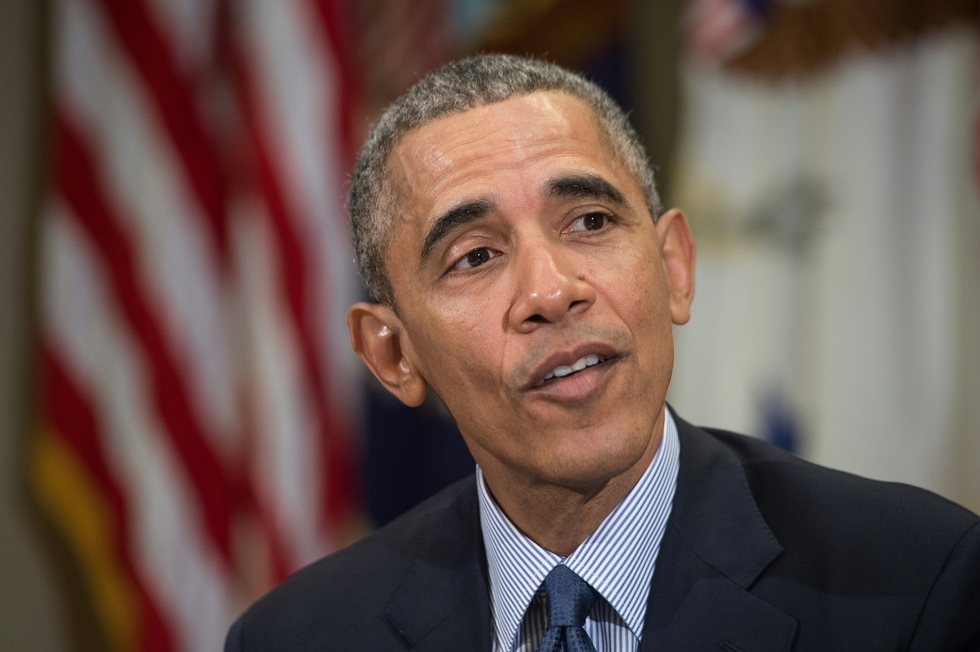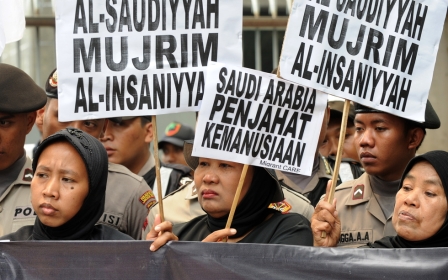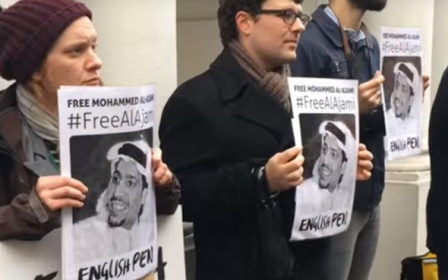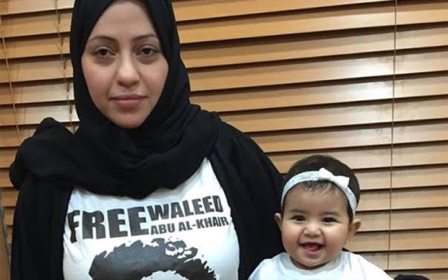Rights groups urge Obama to help Gulf 'free speech' prisoners

US President Barack Obama has come under pressure from rights groups to help free human rights activists imprisoned under Gulf monarchies ahead of a summit with Gulf Cooperation Council (GCC) leaders later this month.
In an open letter published on Saturday by the Gulf Center for Human Rights (GCHR), signatories urged Obama "to press for the release of all detained human rights defenders across the Gulf region who are imprisoned solely due to their peaceful and legitimate human rights work".
"Instead of working with human rights defenders to combat extremism and build tolerant societies, authorities in the GCC countries have jailed dozens of them, in some cases for life, simply for exercising their right and duty to promote and protect human rights via freedoms of expression, association and peaceful assembly," it said.
The letter's eleven non-governmental organisation signatories included Reporters Without Borders, Human Rights First and Front Line Defenders.
People such as the blogger Raif Badawi, who was imprisoned for 10 years in Saudi Arabia and sentenced to 1,000 lashes, Abdulhadi Al-Khawaja, co-founder of the Bahrain Center for Human Rights and the GCHR, who was sentenced to life imprisonment for taking part in democracy protests, and Dr Nasser Bin Ghaith, whose whereabouts have been unknown since 2015, were among those held up as examples of the abuses perpetrated by Gulf states.
Many other men and women are listed in the letter, all of whom have been imprisoned on charges relating to free speech.
The groups reminded Obama of his "promises made in 2011 to support popular movements for reform across the region".
Obama is to attend a GCC summit in Riyadh on 21 April, which is to focus on the fight against jihadist groups and regional conflicts, according to the White House.
The summit follows one with Gulf allies in Camp David in May last year, which Saudi King Salman did not attend amid angst over Washington's efforts at the time to reach a nuclear deal with the kingdom's rival, Iran.
Visiting Bahrain on Thursday, US Secretary of State John Kerry told authorities in the Sunni-ruled kingdom accused of discriminating against the country's Shia majority that respect for human rights was "essential".
The GCC includes the Sunni-dominated monarchies of Saudi Arabia, the United Arab Emirates, Qatar, Kuwait, Oman and Bahrain.
New MEE newsletter: Jerusalem Dispatch
Sign up to get the latest insights and analysis on Israel-Palestine, alongside Turkey Unpacked and other MEE newsletters
Middle East Eye delivers independent and unrivalled coverage and analysis of the Middle East, North Africa and beyond. To learn more about republishing this content and the associated fees, please fill out this form. More about MEE can be found here.




